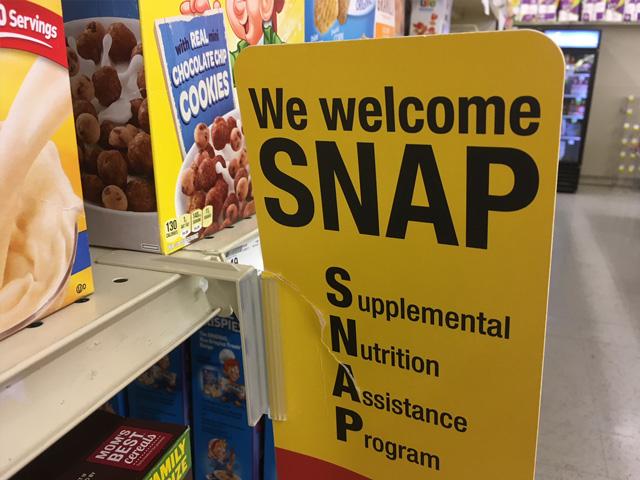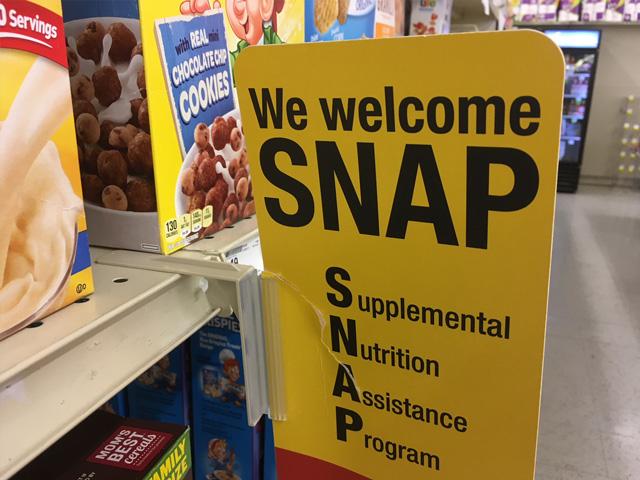Ag Policy Blog
Debt Bill Changes SNAP and Potentially Pulls Some USDA Broadband Funds
All eyes are on lawmakers in Washington as President Joe Biden and House Speaker Kevin McCarthy try to line up the votes for their bill to raise the debt ceiling.
The bill, as released Sunday by McCarthy, R-Calif., would cover U.S. obligations through Jan. 2, 2025. The bill is titled the Fiscal Responsibility Act.
The bill makes changes to eligibility under the Supplemental Nutrition Assistance Program (SNAP) for single people in their 50s and also could take away some rural broadband funds from USDA as well. The bill, however, keeps intact much of the Inflation Reduction Act, including its renewable energy tax credits and funding provided to USDA for conservation programs.
House Rules Committee Chairman Tom Cole, R-Okla., said the committee will meet Tuesday afternoon to consider what Cole called an "emergency measure."
House Majority Leader Steve Scalise, R-La., said that the House will meet at 2 p.m. Wednesday to consider the bill. Scalise said he expects first votes at 3:30 p.m. and last votes by 8:30 p.m.
Lawmakers are trying to get a bill to avoid a potential government default on June 5.
A White House official told reporters in a call Sunday that that the Republican House bill had "proposed to expand the SNAP work requirements to people age 50 to 55; currently, they go from 18 to 49. And then during the negotiations, Republican negotiators demanded another SNAP cut that would have restricted state flexibility to waive SNAP work requirements in areas with insufficient jobs."
"The final agreement makes no changes to state waivers. It does, however, include the Republican proposal to phase in SNAP work requirements to people up to age 54. But at the president's insistence, it also includes changes that will actually reduce the number of vulnerable people who are subject to SNAP work requirements. And these exemptions apply to all ages 18 to 54. So these exemptions are for people who are homeless and veterans, as well as foster youth.
"And I'll point out that [Housing and Urban Development] Secretary [Marcia] Fudge noted today that the definition of homeless in the existing SNAP statute is broad. That includes housing instability.
"So, you know, if you factor in both the '50 to 54' change, but also the changes for veterans, for the homeless, and for foster youth, we expect that the number of people subject to SNAP work requirements will stay roughly the same under this agreement. And that's even the case when the age change is fully phased in.
"I'll also say that at the president's insistence, the SNAP changes in this bill are temporary, sunsetting in 2030, which will give Congress an opportunity to reevaluate them."
P[L1] D[0x0] M[300x250] OOP[F] ADUNIT[] T[]
There is also a provision that says, "The unobligated balances of amounts made available under the heading 'Rural Development Programs -- Rural Utilities Service --Distance Learning, Telemedicine, and Broadband Program' in title I of division 8B of Public Law 116--136 are hereby permanently rescinded."
In an article published by The Wall Street Journal, McCarthy wrote, "All in all, the Fiscal Responsibility Act is truly worthy of the American people."
"It does what is responsible for our children, what is possible in divided government, and what is required by our principles and promises. Only because of Republicans' resolve did we achieve this transformative change to how Washington operates. We are 141 days into this Republican majority, and we're only getting started."
Before the bill text was released, Center on Budget Policy and Priorities Sharon Parrott said in a statement, "While the debt ceiling agreement announced last night is a significant improvement over the radical House bill, it is not the deal the country deserves."
"The agreement puts hundreds of thousands of older adults aged 50-54 at risk of losing food assistance, including a large number of women," Parrott continued.
"Doubling down on the existing, failed SNAP work-reporting requirement for adults aged 18-49 without children, this provision ignores the strong evidence that it takes food assistance away from large numbers of people without increasing employment or earnings.
"A large share of low-income adults in this age range are in poor health; many of them will lose basic assistance they need to buy groceries because they aren't able to meet the work-reporting requirement; and the exemption system, notoriously laden with red tape, won't work.
"Decades of experience under the existing policy shows that many of those whose SNAP benefits are taken away should have been exempt. Those newly at risk of losing food assistance have very low incomes, typically well below the poverty line, and will be pushed even deeper into poverty when they lose SNAP."
But she added, "The agreement includes some improvements to the existing failed SNAP policy."
"While the new exemptions are positive, improvements for some don't justify expanding to others a failed policy that will increase and deepen poverty.
"Under the agreement, veterans and people experiencing homelessness can be exempted from the requirements if states properly identify that they meet these criteria. But many veterans and people experiencing homelessness should have been exempt under the current criteria; the need for a special category exposes the failures of the current exemption system.
"And most people aged 50-54 newly subject to the requirements are not veterans or people experiencing homelessness.
"Taking about $8 per person per day on average of food assistance away from older adults was never about reducing deficits -- the savings are tiny in the context of the federal budget and the U.S. can easily afford to ensure that people can afford food."
Rural Voices USA, a nationwide network of farmers and rural community leaders, urged Congress to pass the bill.
"Now that agreement has been reached on addressing the debt ceiling, we urge Congress to move forward with passing it," Rural Voices Board President Chris Gibbs said.
"Rural America would be hammered by default and its cascading impacts on retirement savings, farm credit, access to capital, benefits and more.
"In addition to avoiding this politically manufactured crisis, Congress should get back to the business of legislating: investing in rural health care and education, expanding new markets for our agriculture products, and protecting every American's right to vote."
-Fiscal Responsibility Act of 2023 https://docs.house.gov/…
DTN Ag Policy Editor Chris Clayton contributed to this report.
Jerry Hagstrom can be reached at jhagstrom@nationaljournal.com
Follow him on Twitter @hagstromreport
(c) Copyright 2023 DTN, LLC. All rights reserved.






Comments
To comment, please Log In or Join our Community .